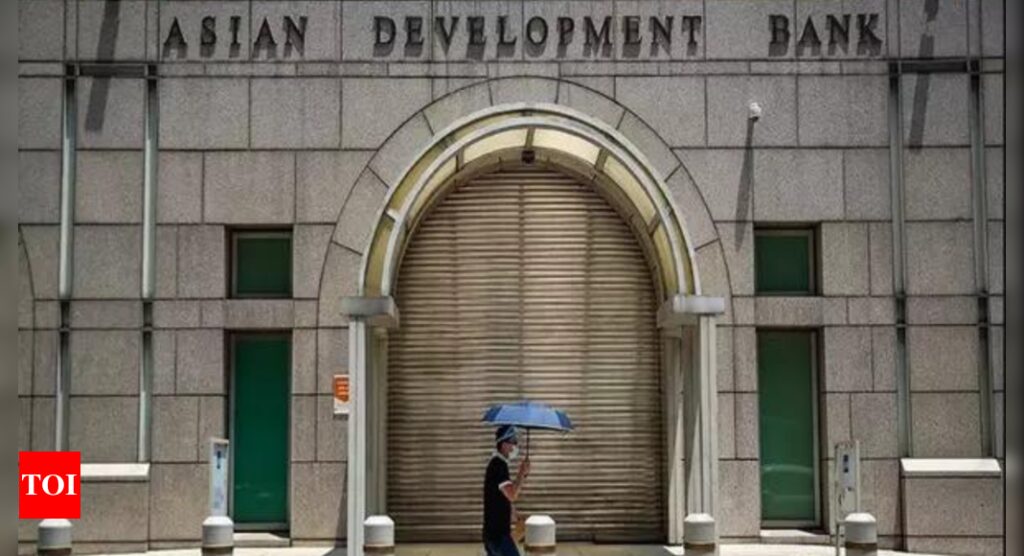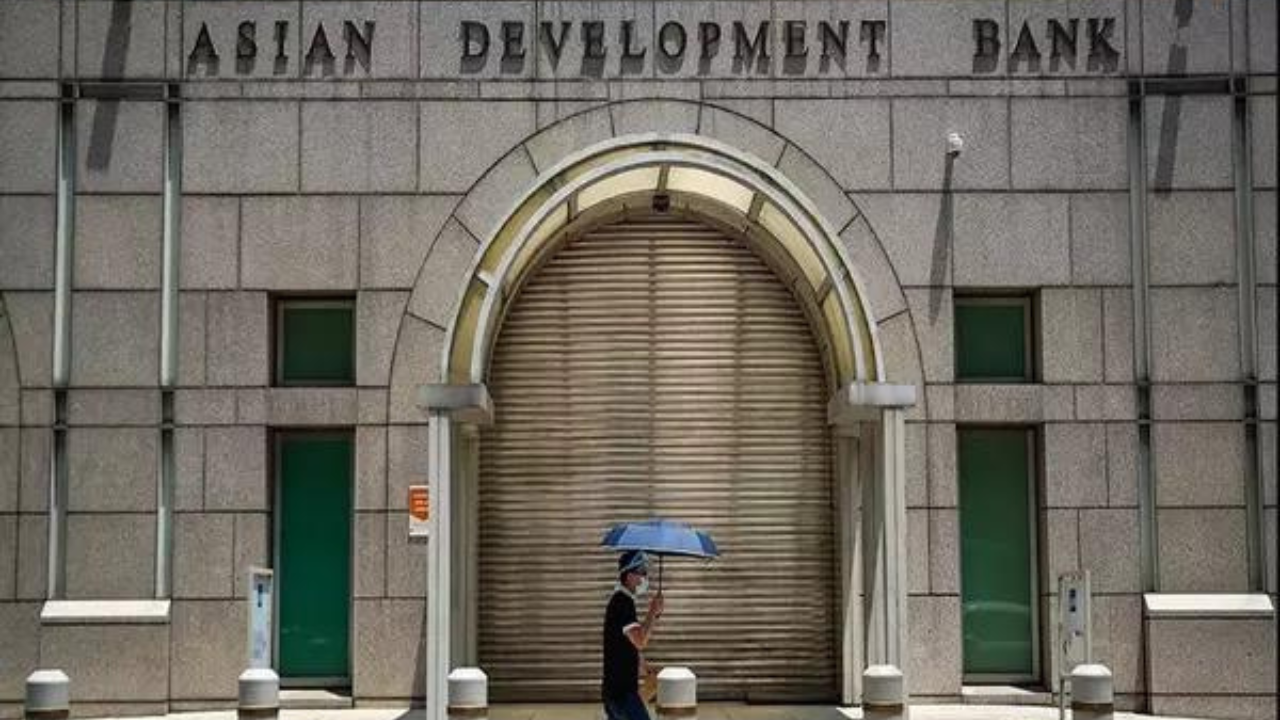[ad_1]
KOCHI: In a significant development, the Asian Development Bank (ADB) has given the nod to a USD 170 million loan aimed at modernizing water supply services in Kochi, a bustling city in the southern Indian state of Kerala.
According to ADB, this move is expected to play a pivotal role in elevating urban living standards, ensuring clean water access, and bolstering climate resilience.
Kochi, often referred to as the commercial capital of Kerala, has witnessed rapid urbanization, making it one of India’s fastest-growing urban centres.
Despite nearly universal coverage, water availability in the city is characterized by intermittent supply, ranging from 5 to 24 hours a day, depending on the locality.
This has led to the common sight of tanker trucks delivering water to areas facing low water pressure and inadequate supply.
ADB’s intervention comes against the backdrop of Kerala experiencing severe dry spells and droughts, notably in 2016, which severely impacted water availability.
As climate projections indicate increased variability in rainfall frequency and rising temperatures, ensuring reliable and safe water services is deemed a critical climate adaptation strategy.
Senior Urban Development Specialist Hikaru Shoji emphasizes the importance of providing quality water, highlighting its role in inclusive development, particularly impacting the health and well-being of vulnerable communities.
Shoji said, “Kerala has experienced severe dry spells and droughts, with the latest and most distressing one in 2016 that affected the availability of water. As climate projections point to varying frequency of rainfall and rising temperature, provision of reliable and safe water services is a critical climate adaptation strategy”.
Shoji added, “Access to quality water is a prerequisite for inclusive development as it affects the health and well-being of the population, especially in disadvantaged communities. Women, who are usually responsible for domestic work and care of family members, are directly affected by poor water access.”
The project aims to mitigate these challenges and enhance access to quality water, a vital element of inclusive development.
The ambitious project involves the rehabilitation and upgrade of five existing water treatment plants with a cumulative production capacity of 325 million litres per day (MLD).
Additionally, a new plant with a capacity of 190 MLD will be constructed. To minimize treated water loss during distribution, around 700 kilometres of pipes will be replaced, accompanied by the introduction of a real-time monitoring system.
Furthermore, approximately 146,000 water meters will be upgraded to high-quality and reliable meters.
One of the distinctive features of this initiative is the introduction of preventive maintenance and asset management practices through a long-term performance-based contract.
This encompasses the operation and maintenance of water distribution infrastructure, as well as rehabilitation and upgrading activities.
Recognizing the importance of institutional capacity, the project seeks to strengthen the Kerala Water Authority (KWA).
This involves the introduction of a mobile app for improved billing and collection, the development of a geographic information system-based maintenance management system, and the upgrading of the laboratory information system.
Technical and managerial staff at KWA will undergo comprehensive training to enhance their expertise in various aspects of water supply services.
In a bid to promote female employment in the construction, operation, and maintenance of water supply systems, the project places a special focus on training initiatives.
Additionally, community awareness programs, involving active participation from women (50 per cent), will be conducted to improve knowledge on household supply, water audits, water quality, and hygiene.
Topics such as menstrual hygiene and waterborne diseases will be addressed to ensure a holistic approach to community engagement.
The Asian Development Bank, established in 1966 and owned by 68 members, has consistently championed the cause of sustainable development in the Asia-Pacific region.
With a commitment to eradicating extreme poverty, ADB’s endorsement of the Kochi water modernization project aligns with its broader goals of fostering prosperity, inclusivity, resilience, and sustainability.
As the city of Kochi embarks on this transformative journey towards water infrastructure modernization, the ADB-backed initiative emerges as a beacon of hope for improved living conditions, climate adaptation, and sustainable urban development.
According to ADB, this move is expected to play a pivotal role in elevating urban living standards, ensuring clean water access, and bolstering climate resilience.
Kochi, often referred to as the commercial capital of Kerala, has witnessed rapid urbanization, making it one of India’s fastest-growing urban centres.
Despite nearly universal coverage, water availability in the city is characterized by intermittent supply, ranging from 5 to 24 hours a day, depending on the locality.
This has led to the common sight of tanker trucks delivering water to areas facing low water pressure and inadequate supply.
ADB’s intervention comes against the backdrop of Kerala experiencing severe dry spells and droughts, notably in 2016, which severely impacted water availability.
As climate projections indicate increased variability in rainfall frequency and rising temperatures, ensuring reliable and safe water services is deemed a critical climate adaptation strategy.
Senior Urban Development Specialist Hikaru Shoji emphasizes the importance of providing quality water, highlighting its role in inclusive development, particularly impacting the health and well-being of vulnerable communities.
Shoji said, “Kerala has experienced severe dry spells and droughts, with the latest and most distressing one in 2016 that affected the availability of water. As climate projections point to varying frequency of rainfall and rising temperature, provision of reliable and safe water services is a critical climate adaptation strategy”.
Shoji added, “Access to quality water is a prerequisite for inclusive development as it affects the health and well-being of the population, especially in disadvantaged communities. Women, who are usually responsible for domestic work and care of family members, are directly affected by poor water access.”
The project aims to mitigate these challenges and enhance access to quality water, a vital element of inclusive development.
The ambitious project involves the rehabilitation and upgrade of five existing water treatment plants with a cumulative production capacity of 325 million litres per day (MLD).
Additionally, a new plant with a capacity of 190 MLD will be constructed. To minimize treated water loss during distribution, around 700 kilometres of pipes will be replaced, accompanied by the introduction of a real-time monitoring system.
Furthermore, approximately 146,000 water meters will be upgraded to high-quality and reliable meters.
One of the distinctive features of this initiative is the introduction of preventive maintenance and asset management practices through a long-term performance-based contract.
This encompasses the operation and maintenance of water distribution infrastructure, as well as rehabilitation and upgrading activities.
Recognizing the importance of institutional capacity, the project seeks to strengthen the Kerala Water Authority (KWA).
This involves the introduction of a mobile app for improved billing and collection, the development of a geographic information system-based maintenance management system, and the upgrading of the laboratory information system.
Technical and managerial staff at KWA will undergo comprehensive training to enhance their expertise in various aspects of water supply services.
In a bid to promote female employment in the construction, operation, and maintenance of water supply systems, the project places a special focus on training initiatives.
Additionally, community awareness programs, involving active participation from women (50 per cent), will be conducted to improve knowledge on household supply, water audits, water quality, and hygiene.
Topics such as menstrual hygiene and waterborne diseases will be addressed to ensure a holistic approach to community engagement.
The Asian Development Bank, established in 1966 and owned by 68 members, has consistently championed the cause of sustainable development in the Asia-Pacific region.
With a commitment to eradicating extreme poverty, ADB’s endorsement of the Kochi water modernization project aligns with its broader goals of fostering prosperity, inclusivity, resilience, and sustainability.
As the city of Kochi embarks on this transformative journey towards water infrastructure modernization, the ADB-backed initiative emerges as a beacon of hope for improved living conditions, climate adaptation, and sustainable urban development.
[ad_2]
Source link











More Stories
India’S Growth Forecast: S&P ups India’s FY’24 growth forecast to 6.4% on robust domestic momentum
India to remain fastest-growing major economy, but demand uneven: Poll
Jack Ma: Jack Ma gets back into business with ‘Ma’s Kitchen Food’